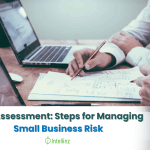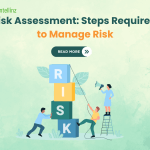The process of selling your business is challenging and complex. There are many things that can go wrong before you finalize the deal, including the failure to locate a buyer, selling for too little, or encountering a confidentiality violation. However, you may reduce these risks if you take the appropriate measures to get ready for a profitable sale and a smooth transition.
Although each business sale differs, the fundamental process remains the same, and there are well-established steps you must take. In this article, we will discuss some tips for you to follow to successfully sell your business and find the right buyer.
Tips for Selling Your Company
If you’re ready to sell your business, take the following steps to help you land the deal you want and ensure the transfer of ownership goes smoothly.
1. Maintain clean and well-documented financials.
Financial problems are the main cause of businesses failing to sell. You must, therefore, file tax returns that reflect a profit and pay your taxes. Having accurate financial information is crucial because it will serve as the basis for any future sales you make. Consult with your accountant and tax advisor to prepare the groundwork for your company’s appraisal and sale negotiation.
Since the financials of your company are what buyers will use to determine its value, they will be closely examined. Therefore, the more data, assertions, and other supporting evidence you can acquire, the better.
2. Get an estimate of your business’s worth.
You may even believe your company is priceless and that you are aware of its worth. There is, however, a genuine fair market value for your business, and you’ll need the assistance of an expert to figure out what it is. You can increase your valuation without overpricing and frightening away potential purchasers by having a professional assess your company’s financial soundness, historical sales and expenses, and predicted performance over time.
Analyses of your company’s finances, goods and services, business strategy, marketing tactics, and management team are all part of the valuation process. Everything that is relevant to the current health and future potential of your business will be considered.
Following the evaluation, you’ll be given an estimate or range of the value of your firm and the asking price you can anticipate. This valuation is based on a multiple of your company’s profit as estimated by recently sold, comparable businesses.
3. Hire a reliable broker.
A broker will help you navigate the difficult business sale process and handle a lot of the grunt work. A quality broker is worth more than the commission you pay.
So what should a good broker do? For starters, they should take the following actions:
- Provide advice on a valuation range and conduct a business valuation.
- Keep your identity private.
- To attract several bidders to your business, design a competitive deal procedure.
- Plan your due diligence activities to ensure a successful transaction (many sales fall through for lack of due diligence).
- Provide you with qualified, eager customers and promote your company.
- Throughout the deal, assist the customer.
- Assistance in talks.
- Introduce financial and finance resources.
- Plan with attorneys, accountants, and other consultants.
- Make the finest agreement you can for the two parties.
4. Find a pre-qualified buyer.
Only serious proposals for your company should be considered by you as the seller. What constitutes a serious offer, and how do you know? Regardless of how well-intentioned they may be, buyers must be able to complete a transaction; otherwise, they are a waste of time. Before getting your expectations up, ask the crucial questions as soon as possible.
Here are some questions to pose to buyers from the beginning of any discussion:
- The question is whether the prospective buyer already has the money they require or if they have received pre-approval.
- Are they typically aware of what they are getting into and does the prospective buyer have experience in the field?
- What plans does the conceivable purchaser have for the company after they take over? This may be a crucial question for you if you’re concerned about what will happen to your company and former employees after you sell the business.
What time frame is the potential buyer taking into consideration? Dealing with a buyer that wants to stretch things out for more than a year may not be a good idea if you want to sell soon.
5. Finalize contracts and close the deal.
It is the most difficult and where most transactions fall through. You must complete all legal paperwork, handle possibly difficult closing discussions, and prevent the deal from falling through at the eleventh hour.
For this point of the transaction, we advise consulting with a business sales attorney. Although your broker may have several in its network, you may prefer to discover one on your own. They will examine every aspect of your deal, so be sure they are firmly on your side. The smallest inaccuracy may be enough to ruin the detail.
What is the average sales time frame?
Depending on the size of the deal, the typical sales process lasts four to ten months.
Will my employees be laid off after I sell?
After you sell your business, the buyer will decide what will happen to your staff. Because of this, it’s crucial to comprehend the buyer’s goals before you finalize the transaction. However, you might stipulate in the contract that the buyer must continue working after the sale.
What happens to my liabilities?
Most business liabilities need to be cleared before the business sells. If a buyer acquires a business with any outstanding debt on the books, it can become the buyer’s liability; however, this item is always pre-negotiated before the purchase agreement is signed.
Conclusion
While some business owners may believe that selling their company is a straightforward procedure, it involves a lengthy process that calls for careful planning, documentation, and intentional effort on both the buyer’s and seller’s parts. But if you do the following measures, you’ll position your firm for a relatively easy sale that pays you the money your business is worth and prepares the buyer for success.
Intellinz provides premium support and assistance throughout every step of successfully selling your business. We simplify the sales process to make your experience as smooth and free of stress as possible.
Feel free to contact us anytime for a short Complimentary Consultation






